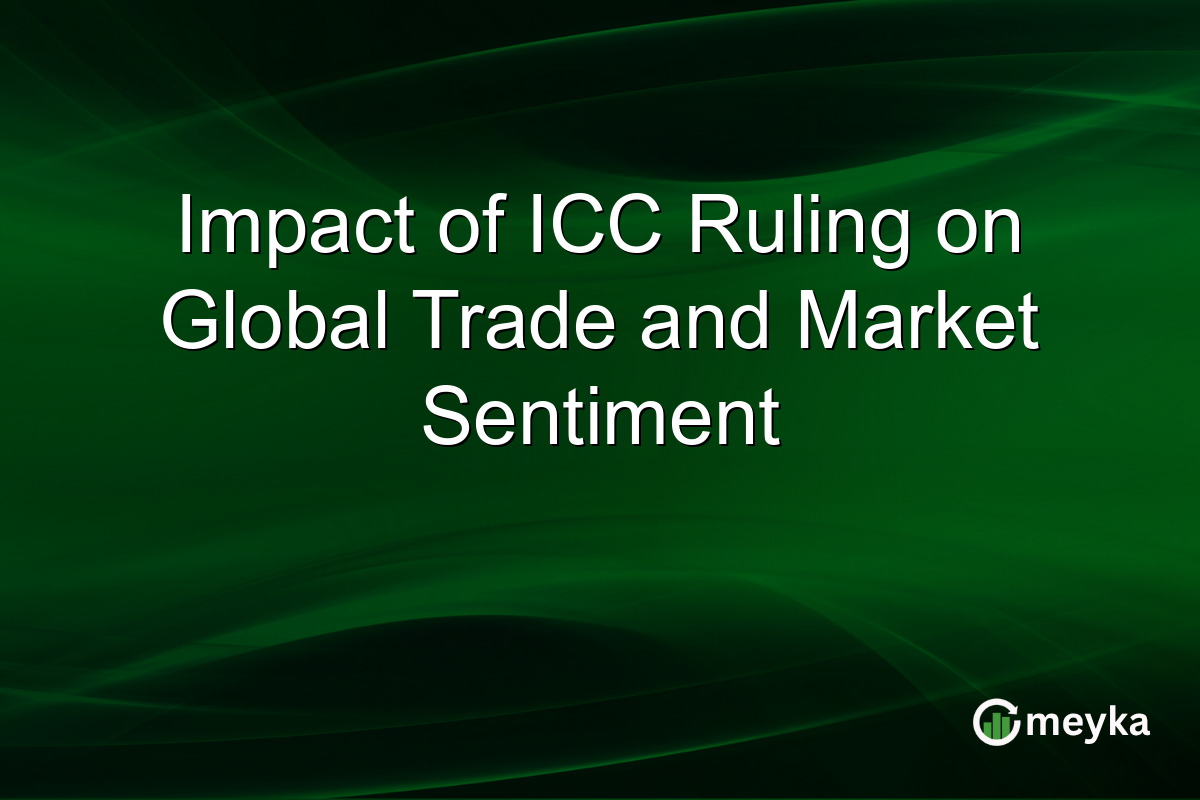Impact of ICC Ruling on Global Trade and Market Sentiment
The recent International Chamber of Commerce (ICC) ruling has captured the attention of investors globally. This landmark decision involves a significant business dispute between Australian and major global firms, emphasizing the ICC’s role in international arbitration. With potential implications for cross-border contract enforcement, the ruling might affect listed company valuations and market sentiment. Analysts are closely examining how this decision could influence risk mitigation strategies in global trade.
Understanding the ICC Ruling
The ICC recently issued a decision on a high-profile arbitration case involving Australian companies and international stakeholders. As part of the International Chamber of Commerce decision, the ruling provides a framework for addressing complex business disputes. It focuses on cross-border contracts, which are often fraught with legal challenges. This shows the ICC’s pivotal role in offering clarity and ensuring fair practices in global trade. Additionally, the ruling highlights the effectiveness of global trade arbitration in resolving disputes efficiently.
Impact on Market Sentiment
Investors are responding to the ICC ruling with a mix of anticipation and caution. The decision could lead to shifts in company strategies, particularly those involved in international trade. Australian business dispute resolution practices may see adjustments, influencing both domestic and international markets. Analysts note potential adjustments in valuations for companies engaged in cross-border activities. For those in global trade, this ruling might redefine contractual relationships, impacting market dynamics and investor confidence.
Precedents for Future Disputes
This ICC ruling may set a significant precedent for future international business disagreements. By clarifying elements of contract enforcement, it serves as a reference point for global trade arbitration. Legal experts suggest that this decision could streamline dispute resolution processes, making them more predictable. The precedent could aid businesses in crafting more secure contracts, thus mitigating risks associated with global trade. Companies might revisit their existing contracts to align more closely with the insights drawn from this decision.
Implications for Australian Businesses
Australian businesses involved in international trade might experience direct impacts from this ICC decision. The clarification on dispute resolution could alter how these companies engage in international agreements. This ruling could enhance the reliability of Australian business dispute resolution strategies on a global scale. For firms in Australia and abroad, understanding this decision is crucial for future cross-border engagements. It highlights the importance of aligning with international legal standards in trade agreements.
Final Thoughts
The ICC ruling significantly impacts global trade practices, leaving a lasting impression on contract enforcement and dispute resolution. Its influence on market sentiment is already palpable, with potential shifts in strategies and valuation approaches among listed firms. As we look ahead, businesses involved in global trade should closely analyze this ruling. By adapting contracts and understanding this decision’s implications, companies can bolster their risk management strategies, paving the way for more robust international trade relations.
FAQs
The ICC ruling clarifies cross-border contract enforcement, serving as a key precedent for future disputes. It underscores the ICC’s role in facilitating fair global trade practices.
The decision influences investor confidence, potentially affecting valuations of companies in international trade. It prompts companies to reassess strategies and risk management.
Australian firms may need to adjust their dispute resolution methods and align contracts with international standards to benefit from the ruling’s clarity and precedents.
By setting clear precedents, the ruling could streamline arbitration processes, offering predictability and encouraging fair resolution methodologies in global trade.
Yes, businesses may revisit their contracts to align with this ruling, ensuring better risk mitigation and adherence to the newly clarified enforcement standards.
Disclaimer:
This is for information only, not financial advice. Always do your research.






